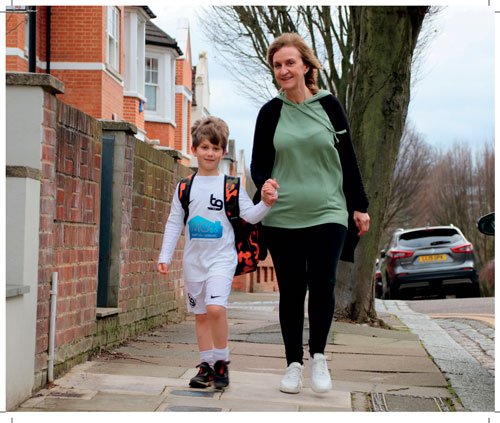by Brean Horne, a personal finance expert at NerdWallet
As the rising cost of living continues to stretch budgets with little signs of slowing down, it can be an extremely worrying time for many people. This is especially true for families and can create questions that are difficult for parents to answer. Parents should be setting time aside to engage in conversations with their children about the cost of living crisis in order to lessen their concerns. Below, Brean discusses how parents can tackle the topic of money when talking to children, and stay realistic about any financial sacrifices that may be needed.
Strike the balance
Honesty is always the best policy, and while ensuring your child is aware of the realities of the rising cost of living is important, it is also crucial to avoid unnecessary panic or worry, and strike the right balance between explaining the seriousness of the situation with not alarming them.
At the moment, while it is not necessary for a child to be too concerned about the intricate details of budgeting and saving, it’s a good idea to make your child aware of the increase in the cost of heating, petrol, groceries, and other essential items.
Be clear with children if the current climate means you have to cut back on some of their favourite brands at the supermarket, or if you need to take them to more budget-friendly clothing stores to pick out new items. Reassure – but don’t promise – them this should
only be temporary and help them to understand how important it is to appreciate all that they do still have, rather than what they don’t.
Be realistic
In the lead-up to the Christmas period, many children may start sharing ideas with their parents of the gifts they want to see sitting under their tree come 25th December. However, this year many may struggle to create a similar festive experience for their own families whilst dealing with ongoing financial pressures.
In order to still create a fun and memorable Christmas for your children, it’s wise to prepare them sooner rather than later that certain sacrifices need to be made if they want certain Christmas presents or experiences, such as swapping pricey weekend activities like cinema trips for a day exploring local walks or visiting a local free-entry museum. Not only will this hopefully help children to realise that parents don’t have access to unlimited wealth to treat them with, it should also emphasise the magic of Christmas and how lucky they are to have a family willing to cut back so they don’t go without.
Be wary of shock value
More often than not, children will consume a lot of information from their peers or from unsourced articles shared to social media platforms written to shock and generate headlines. Both of these are notorious for exaggerating or expanding on the facts of a story or subject, and should not be the way a child is gaining knowledge of the current crisis.
Depending on their age, sit your child down for a frank and honest conversation on the issues that are most concerning to them, and try your best to reduce any panic or worry that they have heard through others or online. Point them in the direction of child-friendly websites that can outline the most pressing issues in easy to digest language, and reassure them that you are always available to answer or tackle any questions or concerns they have.
Teach them about budgeting
Parents can use the cost of living crisis as an opportunity to educate children on the importance of budgeting and saving for a rainy day. Highlighting different issues surrounding inflation, energy bills, how interest rates affect things like mortgage repayments and credit card loans, and even how inflation works, will give them a better perspective on the crisis and is something that they are unlikely to be exposed to within school settings.
For older children, this is also an opportunity to help guide them to set up their own financial accounts, such as a children’s bank card or a prepaid card. This will help them learn how to budget, manage their finances, and understand the satisfaction associated with saving up to purchase something for themselves.
While some children are simply given pocket money or a weekly/monthly allowance, now is a great opportunity to give children age-appropriate chores in order to earn some money themselves.
Involve children in making cost-effective savings around the house
Budgeting doesn’t have to be boring, and there are a multitude of useful and fun ways you can involve children with budgeting tasks around the house.
Set children a task to plan budget-friendly meals with a certain amount of money or ingredients you have in the fridge and cupboards as a Master Chef style challenge, or get them involved in cooking/baking large batches to freeze for a later date – a great way to save money and reduce food waste.
In order to help them understand the energy crisis a little more, it’s also worth setting them the task of ensuring no electronic devices or switches are left on unnecessarily around the house – which can of course be incentivised with rewards.
Article supplied by NerdWallet www.nerdwallet.com/uk/current-accounts/

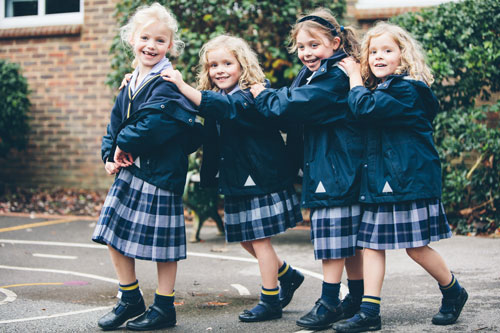


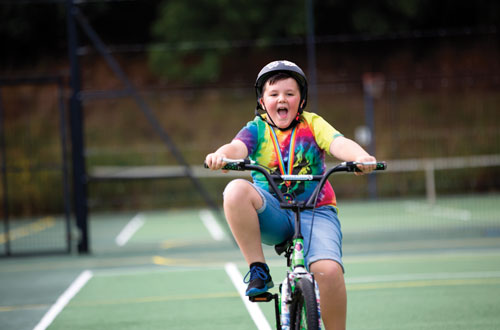
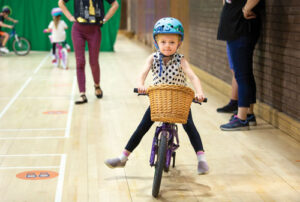 gular physical activity also has links to increased happiness, as well as giving children more opportunities to make friends and social connections.
gular physical activity also has links to increased happiness, as well as giving children more opportunities to make friends and social connections.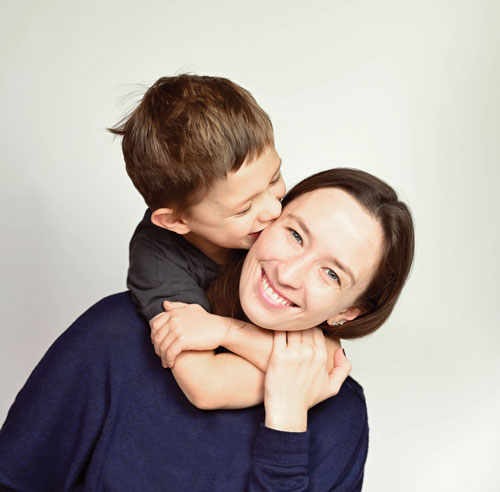

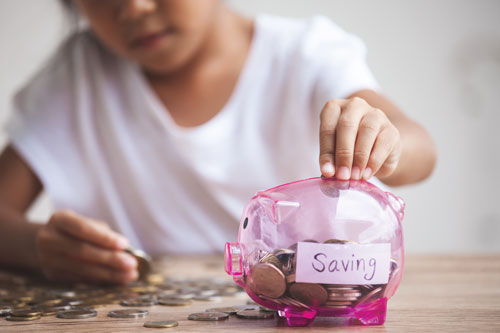
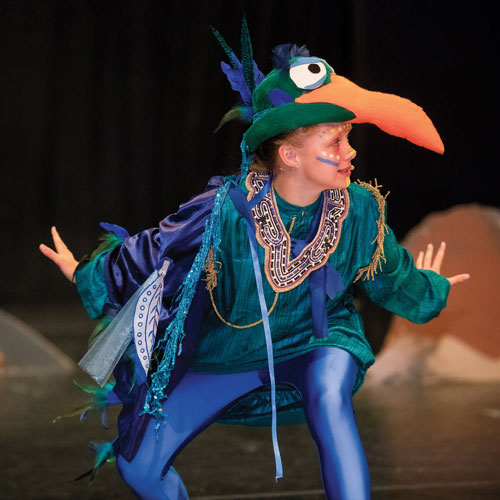
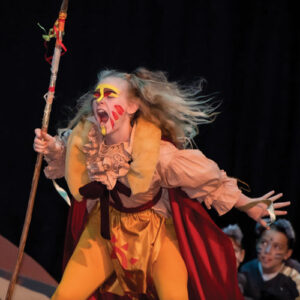 If every opportunity is seized, there is wonderful scope for creating a powerful cross-curricular approach to developing a show. By learning about the literature, history, art, music, and dance that surrounds a story, we cultivate an appreciation for traditions, beliefs, design and stagecraft. As part of the preparations for our school’s recent production of The Lion King this term, the girls studied the patterns, designs and colours used in African prints before creating their own designs for fabrics, masks and marketing materials. They studied each character in the script and crafted symbols and emblems to represent them; meticulously forming links between characters who were related or belonged to the same group. Later, these were hand printed onto fabrics using block printing techniques so that they could finally be made into the cast’s costumes. Through workshops with external educators, they learnt about the importance and significance of symbolism in Adinkra printing; the rhythms and collective energy used in African drumming; and the storytelling techniques, as well as traditional movements, that can be generated through dance. We focused on the importance of recycling materials and made masks and props out of plastic milk bottles. This process was amazing – our girls were captivated by the transformation achieved with these simple objects. In addition to this, by singing songs in African dialects, we enhanced our understanding and appreciation of sounds and languages. The opportunities for extending the students’ learning through stimulating and interlinked topics are boundless.
If every opportunity is seized, there is wonderful scope for creating a powerful cross-curricular approach to developing a show. By learning about the literature, history, art, music, and dance that surrounds a story, we cultivate an appreciation for traditions, beliefs, design and stagecraft. As part of the preparations for our school’s recent production of The Lion King this term, the girls studied the patterns, designs and colours used in African prints before creating their own designs for fabrics, masks and marketing materials. They studied each character in the script and crafted symbols and emblems to represent them; meticulously forming links between characters who were related or belonged to the same group. Later, these were hand printed onto fabrics using block printing techniques so that they could finally be made into the cast’s costumes. Through workshops with external educators, they learnt about the importance and significance of symbolism in Adinkra printing; the rhythms and collective energy used in African drumming; and the storytelling techniques, as well as traditional movements, that can be generated through dance. We focused on the importance of recycling materials and made masks and props out of plastic milk bottles. This process was amazing – our girls were captivated by the transformation achieved with these simple objects. In addition to this, by singing songs in African dialects, we enhanced our understanding and appreciation of sounds and languages. The opportunities for extending the students’ learning through stimulating and interlinked topics are boundless.
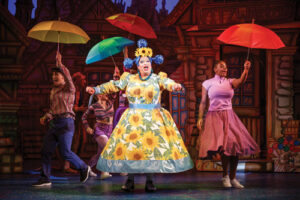 Children’s empathy and emotional intelligence are developed through everyday interaction but they are also nurtured by music, books, and in particular, watching live theatre performances. When watching characters interact on stage, we as the audience connect with them and experience what they are thinking and feeling as if we were thinking or feeling it ourselves – we are practicing how to understand others. Having a safe space to explore difficult emotions is essential to strengthening empathetic muscles and live theatre provides the perfect platform for this. Bill English, founder of the San Francisco Playhouse, states that: “Theatre is like a gym for empathy. It’s where we go to build up the muscles of compassion, to practice listening and understanding and engaging with people that are not just like ourselves. We practice sitting down, paying attention and learning from other people’s actions. We practice caring.”
Children’s empathy and emotional intelligence are developed through everyday interaction but they are also nurtured by music, books, and in particular, watching live theatre performances. When watching characters interact on stage, we as the audience connect with them and experience what they are thinking and feeling as if we were thinking or feeling it ourselves – we are practicing how to understand others. Having a safe space to explore difficult emotions is essential to strengthening empathetic muscles and live theatre provides the perfect platform for this. Bill English, founder of the San Francisco Playhouse, states that: “Theatre is like a gym for empathy. It’s where we go to build up the muscles of compassion, to practice listening and understanding and engaging with people that are not just like ourselves. We practice sitting down, paying attention and learning from other people’s actions. We practice caring.” to the theatre can be a fantastic way of making lasting memories and spending real quality time together. For children (and grownups!) going to see a play feels like something special, something out of the ordinary. Whether it’s the grandeur of the building itself, finding your red velvet seats or begging for a tub of ice cream in the intermission, the experience of going to the theatre is something unique before the play has even begun.
to the theatre can be a fantastic way of making lasting memories and spending real quality time together. For children (and grownups!) going to see a play feels like something special, something out of the ordinary. Whether it’s the grandeur of the building itself, finding your red velvet seats or begging for a tub of ice cream in the intermission, the experience of going to the theatre is something unique before the play has even begun.